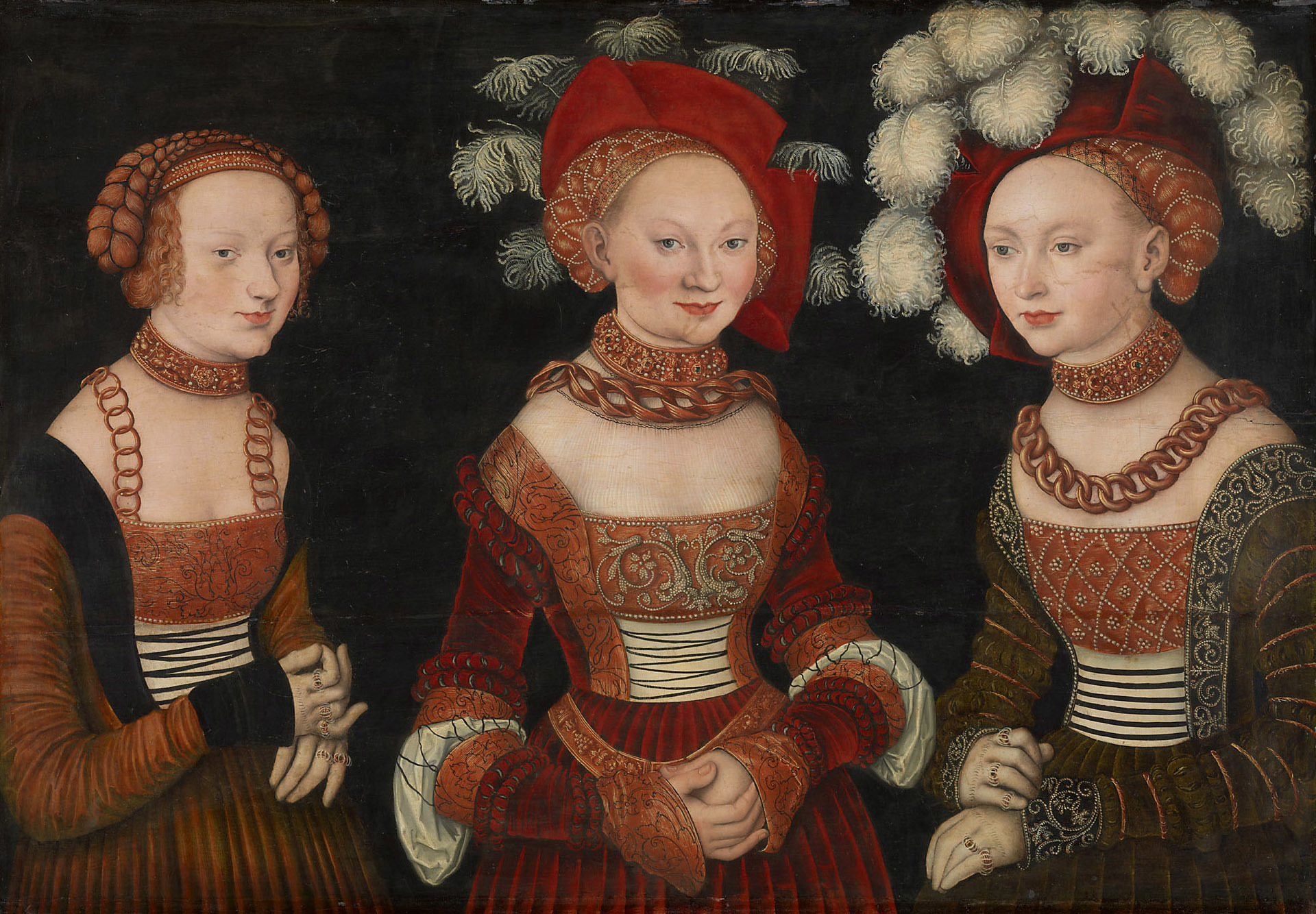During the Corona closure of our Munich Institute, the MGH invite you to join us on a trip through 200 years of medieval research history: The series “Treasures of the MGH Library and Archive” presents a treasure trove of rare and fascinating items illustrating key moments of our history. Enjoy discovering!
Some 500 years ago, a clerk or theology student inscribed one of his books with a number of quotations and sayings and some well-drawn illustrations. The fly-leaf in folio format with writing on both sides is now in the possession of the MGH library. Nothing is known of the author of these notes or the book from which the page was taken. Nevertheless, the associative collection of writings and drawings offers interesting insights into the thoughts of the (young?) man who wrote them and intellectual life at the end of the Middle Ages.
Two verbatim quotations from the Summa Theologiae, the opus magnus of the great scholastic theologian Thomas Aquinas, are a good indication that the writer of the notes may have studied theology. Under a drawing of God’s hand emerging from a cloud in a blessing gesture, he wrote: „Aqua calida citius et fortius congelatur secundum philosophum in metheorologicorum etc“ (warm water freezes more quickly and harder, according to Aristotle in his Meteorology) (1). Next to the second Aquinas quotation: „Prudentia est recta ratio agibilium“ (Prudence is the correct understanding of what can be done), the scholar drew an upright dog with open mouth and noted proudly beside it (2). „Minen hunt“ (my dog).
The phrase „salvata causa salvata effectus“ (if the cause remains, the effect remains) is written twice on the page: it was a popular adage that was also commonly used in late mediaeval medicine. Effectively it is simply the inverse form of another dictum: „sublata causa tollitur effectus“ (if the cause is removed, the effect ceases), a formulation of the causality principle, the origin of which is unclear. Among others, Thomas Aquinas makes reference to this principle in his Summa Theologiae (3).
The connection to Thomas Aquinas is not quite so obvious in another case, a quotation from the Book of Wisdom in the Old Testament written on the lower half of the front page: „Nichil virtute utilius“ (nothing is more useful than virtue) (4). Added to this is a reference to the ninth book of Aristotle’s Nicomachean Ethics: „nono [libro] ethicorum“. Thomas Aquinas regarded Aristotle as the quintessential philosopher and wrote a commentary to his Ethics in his „Sententia libri Ethicorum“.
The seemingly nonsensical phrase: „Ubi lor ibi nus sed ubi mor ibi culus“ is in fact a typically studentish corruption of an common adage already to be found in Notker the German’s De partibus logicae: „Ubi dolor ibi manus, ubi amor ibi oculus, ubi mors ibi timor.“ (bold print by the author). Even Thomas Aquinas quoted from this saying in his Sentences commentary: „Ubi amor ibi oculus“ (5). In the corrupted version, the word „culus“ (arse) could indicate some intended sexual innuendo, the gist of which is now lost, since we have no knowledge of what the words „lor“, „nus“, and „mor“ may have meant in spoken vulgar Latin.
Our unknown doodler also knew something of popular medicinal wisdom: The hexameter „Autumpni fructus caveas / ne sit tibi luctus“ (avoid eating the fruits of autumn, so that you don’t have grief) is a verse from a quatrain on eating with the seasons („de dapibus“) ascribed to the medicinal school of Salerno. (6)
Another note on the front of the page is concerned with proper behaviour. The eagle with spread wings carries a scroll in its talons with words of advice that are just as valid today as they were 500 years ago: „Flysse dich an gut geberde vnde sage nicht falsche mere. Alle di do sint lugente dy sint gote vnwert“ (Strive to behave well and tell no false tales. All who lie are unworthy of God)..
 Ladies with haircuts like the drawings on the reverse page: Lucas Cranach the elder, Kunsthistorisches Museum ViennaOn the reverse of the page, our writer used coloured ink for his notes. Under the drawing of woman’s head with her hair in a bonnet and red lips, he wrote „Eyn guts selygis Jar gluck vnde heyl wunsche mir frowe zcu mynem teyl“ (a good and blessed year, luck and good health wishes me the lady for my part). Beneath, written in red ink, are the words: „Eyn mundelin Rot vß sendern not“ (a little red mouth wakes desire). Expressing himself in the courtship language of „minnesingers“, the note-writer was perhaps thinking of his own erotic temptations (examples of similar vocabulary are to be found in „Schowent uf den anger“ by Gottfried von Neifen).
Ladies with haircuts like the drawings on the reverse page: Lucas Cranach the elder, Kunsthistorisches Museum ViennaOn the reverse of the page, our writer used coloured ink for his notes. Under the drawing of woman’s head with her hair in a bonnet and red lips, he wrote „Eyn guts selygis Jar gluck vnde heyl wunsche mir frowe zcu mynem teyl“ (a good and blessed year, luck and good health wishes me the lady for my part). Beneath, written in red ink, are the words: „Eyn mundelin Rot vß sendern not“ (a little red mouth wakes desire). Expressing himself in the courtship language of „minnesingers“, the note-writer was perhaps thinking of his own erotic temptations (examples of similar vocabulary are to be found in „Schowent uf den anger“ by Gottfried von Neifen).
The following lines are written in royal blue ink by another hand. As if in response to the lines above, and perhaps as a reminder of the exaltation of the spirit as opposed to the perils of worldly pleasures, the second note-writer listed a number of psalm incipits: „Oculi semper ad dominum“ (my eyes are ever towards the Lord) (7), „Celi enarrant gloriam“ (8) und „Circumdederunt“ (9). Between these are the letters „TSR“ written in majuscule script – possibly the initials of the same writer who quoted the psalms.
Annette Marquard-Mois
(1) Thomas of Aquin, Summa Theologiae, Ia-IIae q. 35 a. 6 arg. 2
6,1, last sentence: „Ergo naturale est et conveniens quod plus tristitia fugiatur, quam delectatio appetatur.“ (Therefore it is natural and right for sorrow to be shunned more than pleasure is sought.)
6,2: „Praeterea, actio contrarii facit ad velocitatem et intensionem motus, aqua enim calida citius et fortius congelatur, ut dicit philosophus, in libro Meteor. Sed fuga tristitiae est ex contrarietate contristantis, appetitus autem delectationis non est ex aliqua contrarietate, sed magis procedit ex convenientia delectantis. Ergo maior est fuga tristitiae quam appetitus delectationis. …“ (Further, the action of a contrary conduces to rapidity and intensity of movement: for "hot water freezes quicker and harder," as the Philosopher says (Meteor. i, 12). But the shunning of sorrow is due to the contrariety of the cause of sorrow; whereas the desire for pleasure does not arise from any contrariety, but rather from the suitableness of the pleasant object. Therefore sorrow is shunned more eagerly than pleasure is sought. [Translation: The „Summa Theologica“ of St. Thomas Aquinas, Part II (first part) literally translated by fathers of the english dominican province, London 1911-1925, p. 416])
(2) Thomas of Aquin, Summa Theologiae, Ia-IIae q. 57 a. 4 co.: „Cuius differentiae ratio est, quia ars est recta ratio factibilium; prudentia vero est recta ratio agibilium. “(The reason for the difference is that art is right judgement about things to be produced, while prudence is rectified judgement about things to be done. [Translation W.D. Hughes: St Thomas Aquinas Summa Theologiae, vol. 23, p. 51])
(3) Thomas of Aquin, Summa Theologiae IIa-IIae, q. 20 a. 2 ad 1: „Ad primum ergo dicendum quod effectus tollitur non solum sublata causa prima, sed etiam sublata causa secunda.“(the effect will be removed not only on removal of the first cause, but also on removal of the second cause)
(4) Vulgata, Liber Sapientiae 8,7
Et, si iustitiam quis diligit,
labores huius sunt virtutes:
sobrietatem enim et prudentiam docet,
iustitiam et fortitudinem,
quibus utilius nihil est in vita hominibus.
Translation: King James Bible: "Or if it be uprightness you love, why, virtues are the fruit of her labours, since it is she who teaches temperance and prudence, justice and fortitude; nothing in life is more useful for human beings."
(5) De Partibus Logicae, in: Notker der Deutsche, Die kleineren Schriften. Hrsg. von James C. King und Petrus W. Tax (1996), quoted on p. 192.
Thomas of Aquin, Scriptum super Sententiis, lib. 3 d. 35 q. 1 a. 2 qc. 1 co.: „ … quia ubi amor, ibi oculus; et Matth. 6, 21: ubi est thesaurus tuus, ibi est et cor tuum.“
See also: Thesaurus proverbiorum Medii Aevi 10 (2000), p. 36 No 6
(6) Temporibus veris modicum prandere iuberis;
sed calor aestatis dapibus nocet immoderatis.
autumni fructus caveas; ne sint tibi luctus.
de mensa sume quantum vis tempore brumae.
Rückseite
(7) Vulgata Psalm 24,15 = King James Bible, Psalm 25,15: Mine eyes are ever toward the Lord, for he shall pluck my feet out of the net.
(8) Vulgata Psalm 18,1 = King James Bible, Psalm 19,1: The heavens declare the glory of God; and the firmament sheweth his handywork.
(9) Vulgata Psalm 17,5 = King James Bible, Psalm 18,4: The sorrows of death compassed me, and the floods of ungodly men made me afraid.




